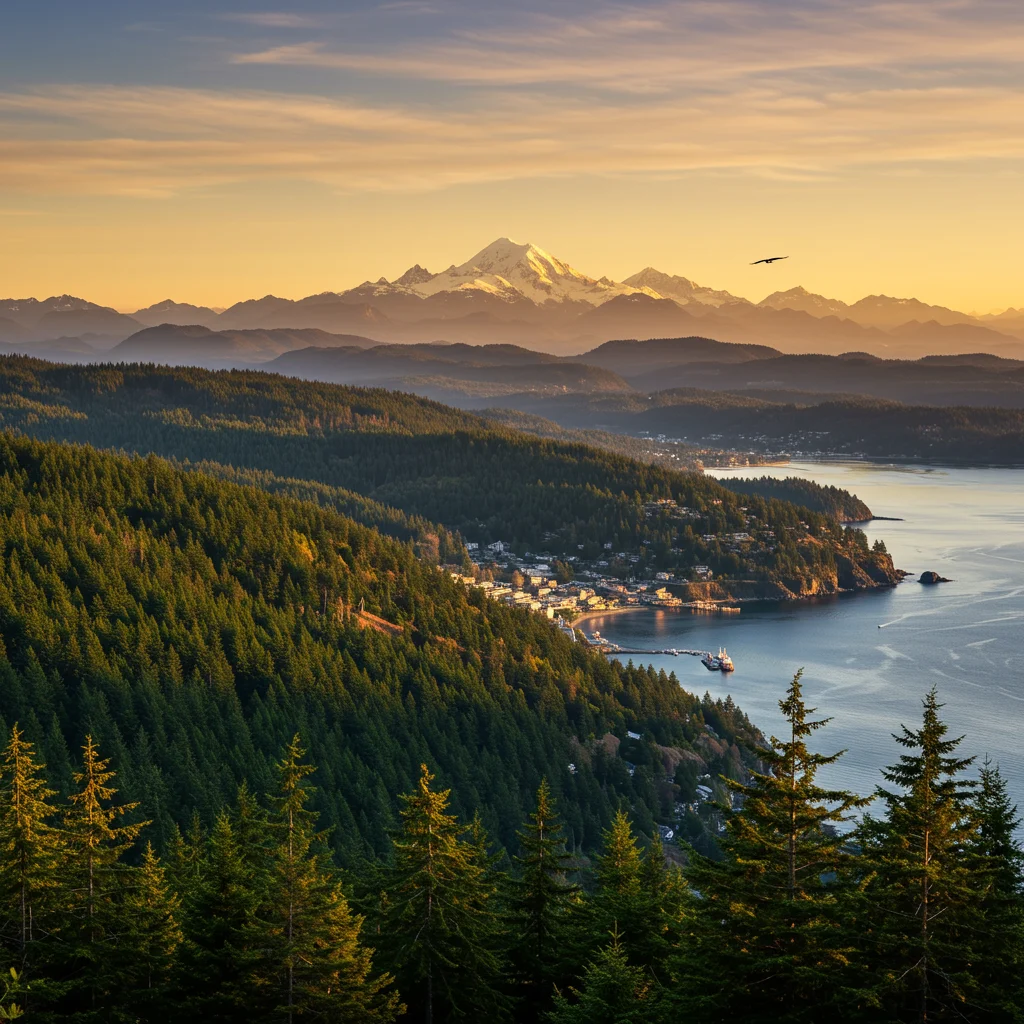Introduction to Whale Watching in Anacortes
Few experiences match the anticipation and awe of encountering whales in their natural habitat. In Anacortes, Washington, the salty breeze, rolling waves, and panoramic vistas of the Salish Sea set the stage for unforgettable whale watching tours. As the gateway to the San Juan Islands, Anacortes attracts nature enthusiasts eager to witness the majesty of these marine giants up close.

Why Choose Anacortes for Whale Watching?
With numerous coastal towns offering whale watching tours, you might wonder what sets Anacortes apart. The answer lies in its unique geography, local culture, and proximity to thriving marine ecosystems.
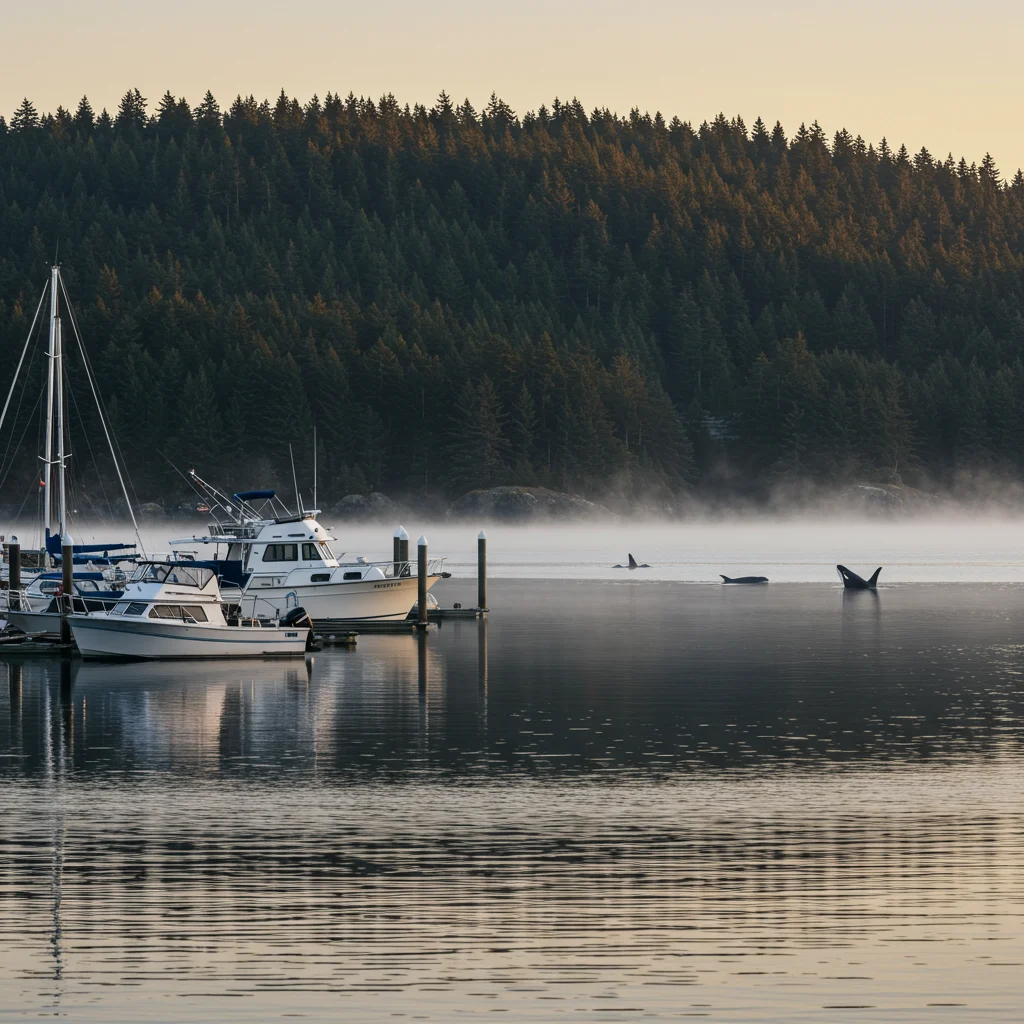
What Makes Anacortes Unique for Nature Lovers?
Anacortes stands out for its rare blend of accessibility and wild beauty. Situated on Fidalgo Island, it offers direct access to the inland waters where orcas, humpbacks, and other whales frequently travel. The town’s passionate naturalist community and eco-conscious operators further enrich every outing.
Overview of the San Juan Islands
The San Juan Islands archipelago, visible from Anacortes, provides sheltered waters and abundant food sources for marine life. Each island’s rocky shorelines and kelp forests create a rich habitat supporting whales, dolphins, seals, and diverse birdlife. For travelers seeking a marine adventure akin to a scenic cruise through pristine waters, the San Juans deliver breathtaking scenery at every turn.
Best Time of Year for Whale Watching from Anacortes
Timing is key to making the most of your whale watching tour. While whales can be seen year-round, certain seasons offer higher chances and different species.
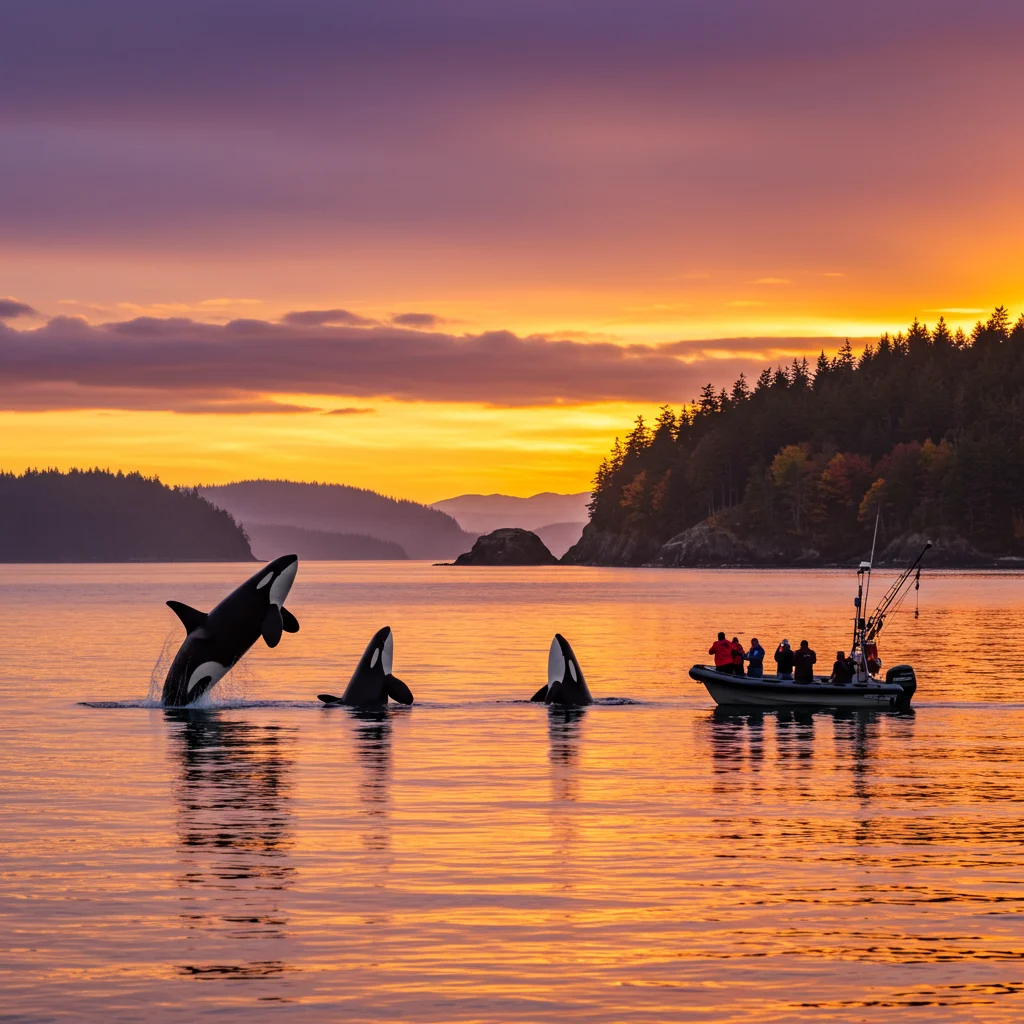
Seasonal Whale Sightings: What to Expect
Each season brings unique whale sightings and atmospheric conditions. Crisp spring mornings, sunny summer afternoons, golden fall light, and brisk winter air all contribute to the experience.
Spring Whale Watching
Spring in Anacortes is marked by migrating gray whales returning from Mexico. The cool air carries the scent of salt and blooming wildflowers, while the sea comes alive with the first bursts of activity after winter’s quiet.
Summer Whale Watching
Summer is the prime season for spotting resident orcas. Clear skies and longer days mean more time on the water, with the possibility of witnessing breaching whales against the backdrop of snow-capped peaks.
Fall Whale Watching
In autumn, humpback whales become more prevalent. The crisp air and vibrant foliage along the islands create a picturesque setting for wildlife photography and peaceful observation.
Winter Whale Watching
Winter tours are less common but offer a quiet, contemplative experience. Hardy travelers may spot transient orcas and the occasional gray whale, often with fewer boats on the water and a sense of serene solitude.
Types of Whales Seen Near Anacortes
The waters around Anacortes host a variety of whale species, each with distinct behaviors and appearances.
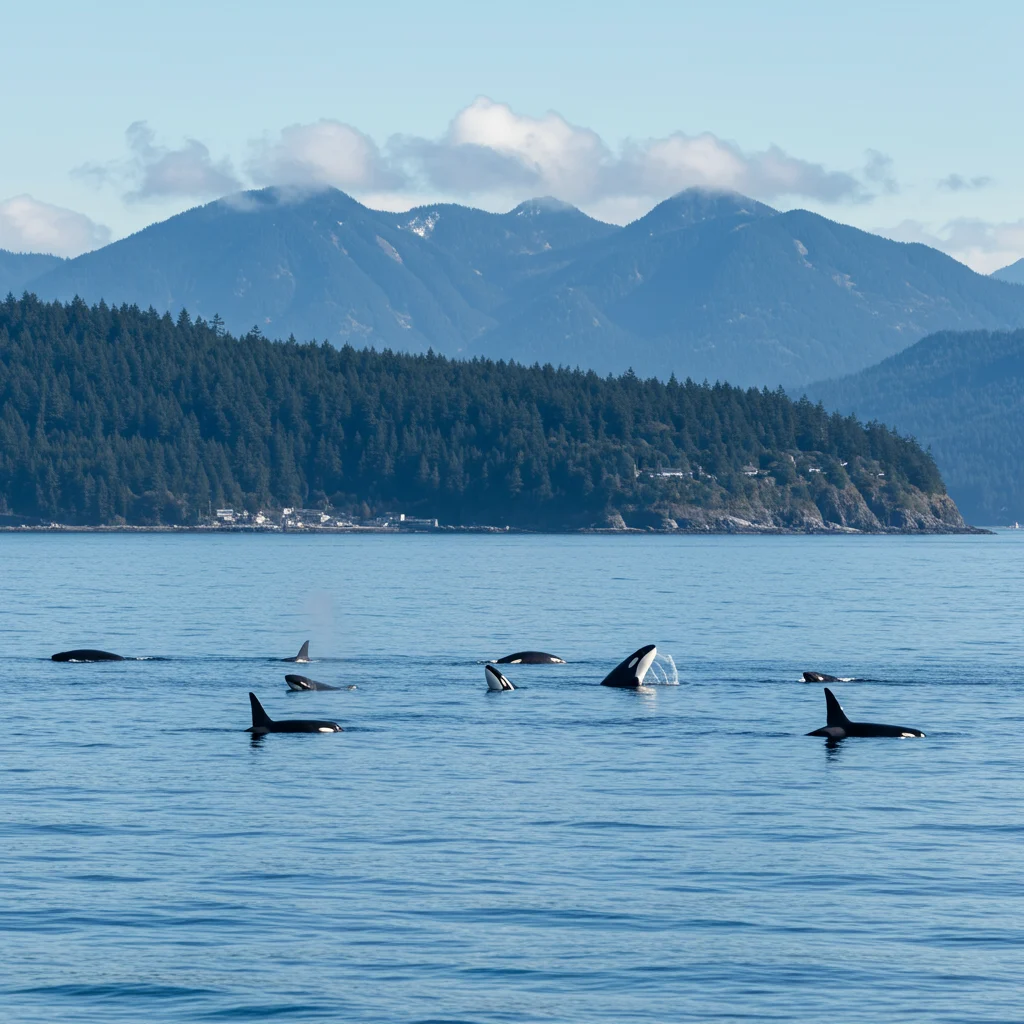
Orcas (Killer Whales)
Orcas—often called killer whales—are the region’s most iconic residents. They travel in family pods, displaying dramatic breaches and social behaviors that enthrall onlookers. The black-and-white coloration of orcas is unmistakable as they glide through the blue-green water.
Humpback Whales
Known for their immense size and acrobatic displays, humpback whales frequent the area from late spring through fall. Their haunting songs and powerful tail slaps are often highlights of summer tours.
Gray Whales
Gray whales migrate along the Pacific Coast and can be seen in the spring as they feed in the shallows. Their mottled gray skin and barnacle-encrusted backs make them easy to identify.
Minke Whales
Smaller and more elusive, minke whales occasionally surface near Anacortes. Quick and agile, they can be challenging to spot but offer a rewarding sighting for patient observers.
Other Marine Wildlife You Might Spot
While whales are the main attraction, whale watching tours from Anacortes often include sightings of other fascinating marine creatures.
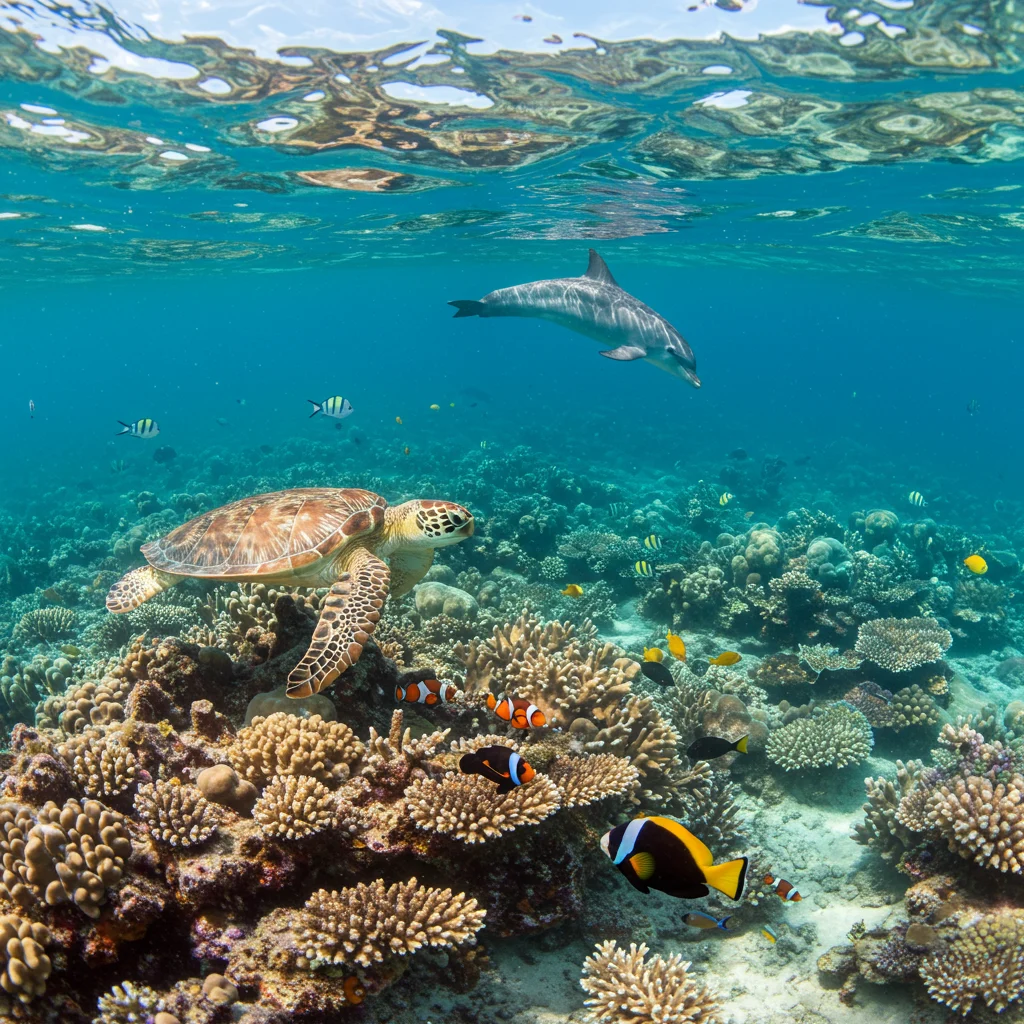
Porpoises and Dolphins
Harbor porpoises and Dall’s porpoises dart through the waves, their sleek bodies creating splashes of white foam. Pacific white-sided dolphins, with their playful antics, sometimes join the fun, delighting passengers with high-speed leaps.
Sea Lions and Seals
Robust Steller sea lions haul out on rocky outcrops, their barks audible over the wind. Harbor seals, with their expressive eyes, can be seen lounging on kelp beds or curiously watching boats pass.
Birdwatching Opportunities
Anacortes is a haven for birdwatchers as well. The region’s rich avian life complements the marine spectacle.
Bald Eagles and Other Raptors
Majestic bald eagles soar overhead, scanning the water for fish. Ospreys and peregrine falcons add to the excitement, often spotted perched on driftwood or gliding above the islands.
Seabirds and Shorebirds
Murrelets, auklets, and cormorants skim the waves, while sandpipers and plovers forage along the shore. The calls of gulls and terns mix with the sea breeze, creating a symphony of sound.
How to Choose the Right Whale Watching Tour
With several reputable tour operators in Anacortes, selecting the best experience for your group requires careful consideration.
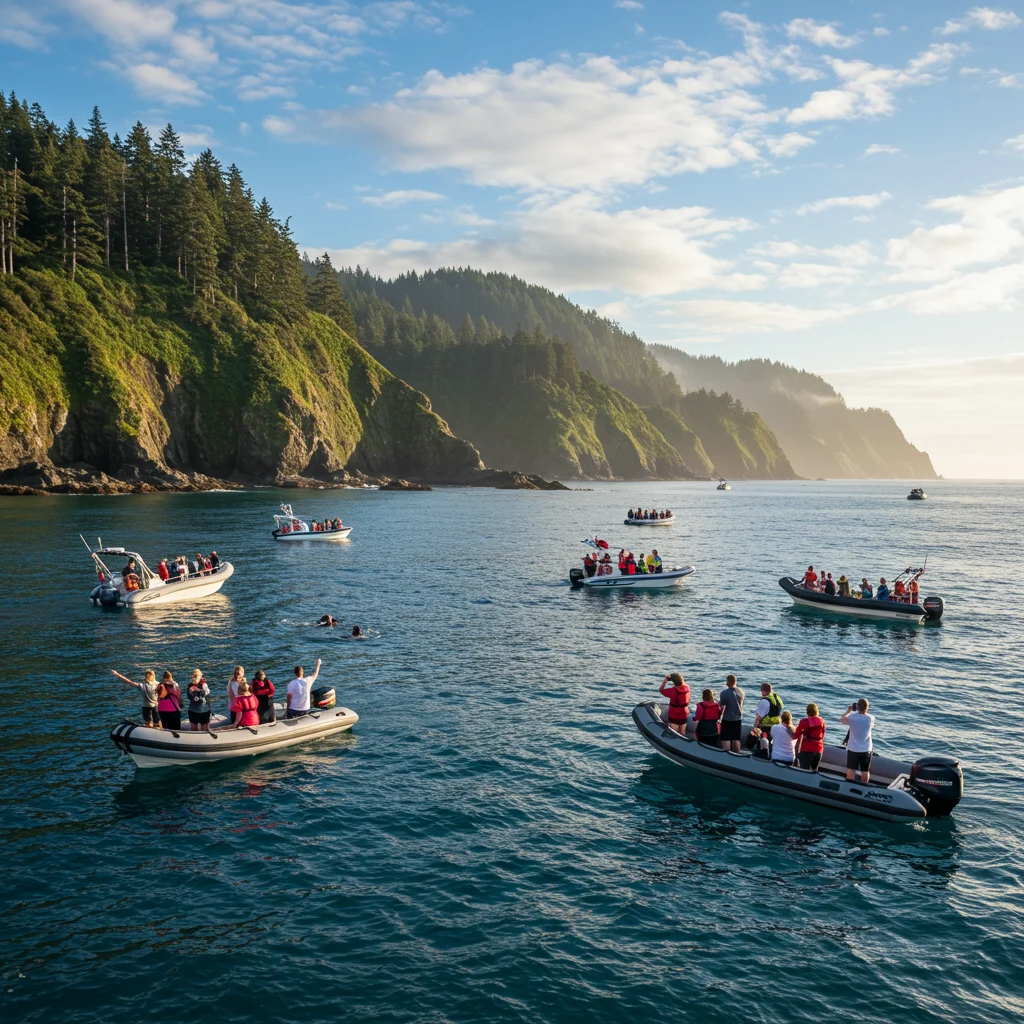
Top Whale Watching Tour Operators in Anacortes
Experienced operators provide knowledgeable guides, comfortable vessels, and safety-focused excursions. Look for companies with positive reviews and a strong commitment to ethical wildlife viewing.
Comparing Tour Packages and Prices
Tour options range from half-day outings to full-day adventures. Packages may include meals, onboard naturalist talks, or special photography-focused trips. Comparing prices and inclusions helps ensure you get the experience you want.
Group vs. Private Tours: Which Is Best?
Group tours offer a social atmosphere and are generally more budget-friendly. Private tours, by contrast, allow for a customized itinerary and a more intimate encounter with wildlife. Families, photographers, or special interest groups may prefer the flexibility of a private charter.
Eco-Friendly and Responsible Tour Operators
Choose operators who prioritize sustainable practices such as low-emission boats, waste reduction, and adherence to wildlife protection guidelines. Responsible operators educate guests about conservation and minimize their impact on fragile marine environments.
What to Expect on a Typical Whale Watching Tour
Knowing what’s included and how the tour unfolds helps you prepare for a smooth, enjoyable outing on the water.
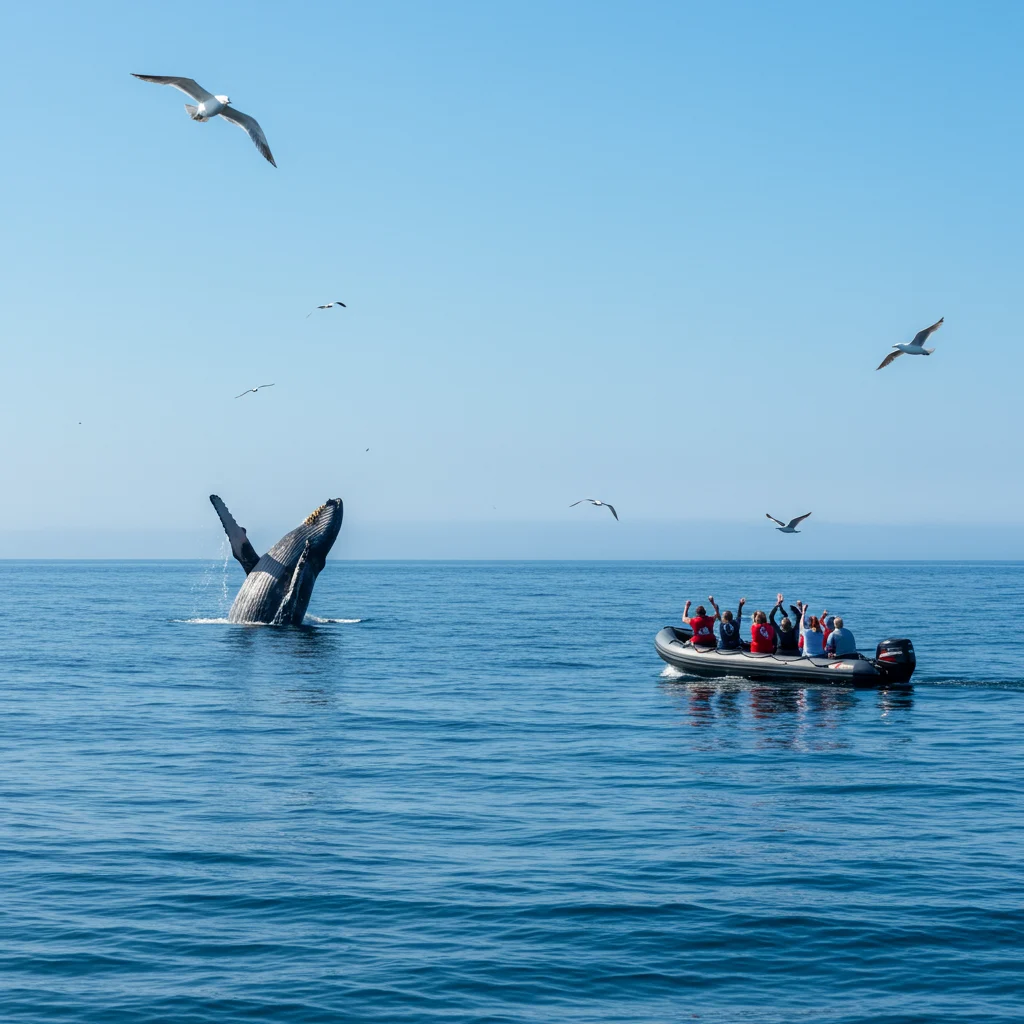
Tour Duration and Itinerary
Most whale watching tours from Anacortes last three to five hours, depending on the season and sightings. The itinerary typically includes a safety briefing, wildlife orientation, and time spent navigating prime feeding grounds.
Departure Points and Check-In Procedures
Tours depart from marinas close to downtown Anacortes. Arrive early to check in, receive boarding instructions, and meet your crew. Operators often provide parking information and directions to the dock.
Onboard Experience: What’s Provided?
Modern whale watching boats offer comfortable indoor and outdoor seating, restrooms, and sometimes complimentary beverages. Binoculars and field guides may be available for guest use, enhancing the wildlife viewing experience.
Guides and Naturalist Presentations
Expert naturalists share fascinating insights about whale behavior, local ecology, and conservation efforts. Their enthusiasm and knowledge transform the tour into an educational journey, connecting passengers with the wonders of the Salish Sea.
What Should You Bring on Your Whale Watching Trip?
Packing thoughtfully ensures you remain comfortable and ready to capture memorable moments during your adventure.
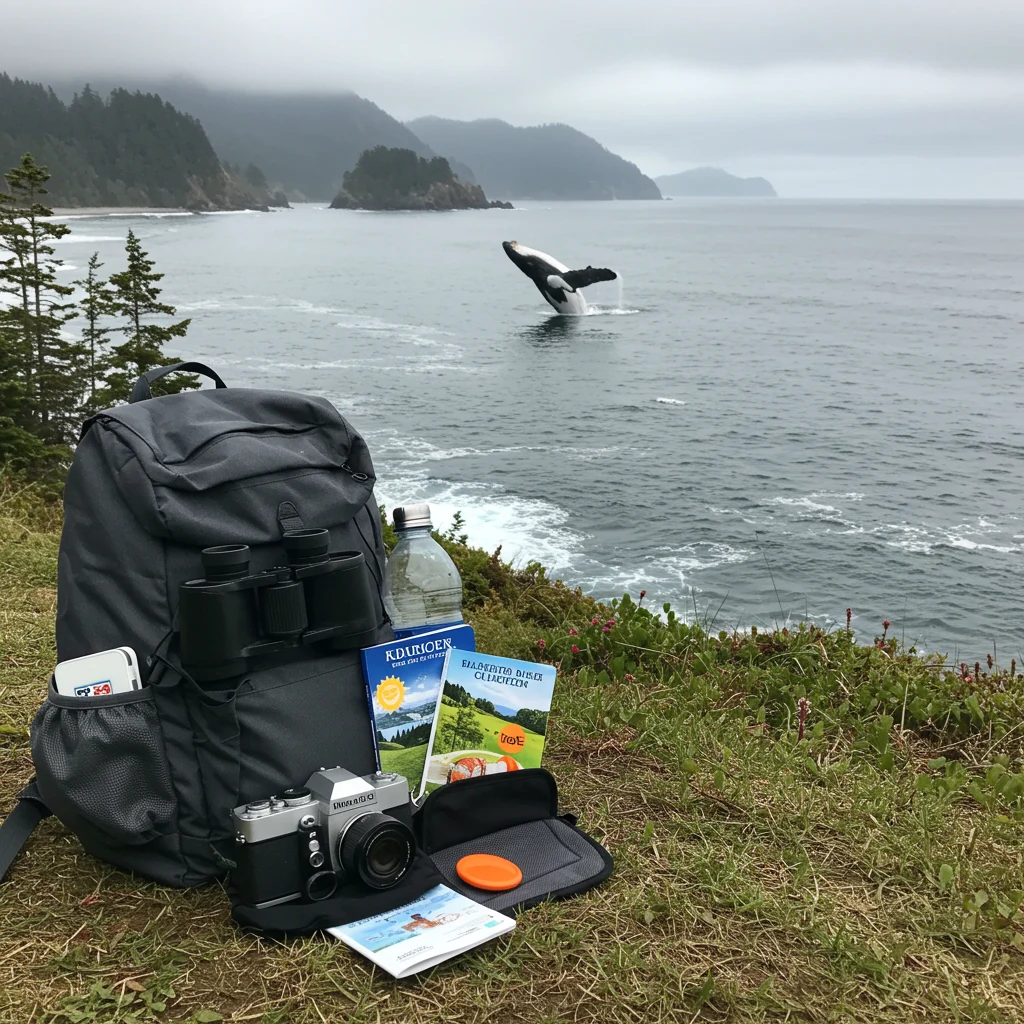
Essential Clothing and Gear
Layered clothing is essential, as weather on the water can change rapidly. Bring a windproof jacket, hat, and gloves, especially in spring and fall. Comfortable, non-slip shoes are important for moving safely on deck.
Recommended Camera Equipment
A camera with a zoom lens allows you to photograph distant whales and birds. Consider bringing extra batteries, memory cards, and a dry bag to protect your gear from sea spray. For tips on photographing moving wildlife, our guide to photographing the Northern Lights offers helpful advice on camera settings and techniques under challenging conditions.
Snacks, Drinks, and Other Comfort Items
Pack water, snacks, and sunscreen for a comfortable trip. Sunglasses and lip balm protect against glare and wind, while motion sickness remedies can help sensitive travelers enjoy the journey.
Safety Tips for Whale Watching Tours
Safety is a top priority for all reputable tour operators. Being prepared helps everyone have a worry-free experience on the water.
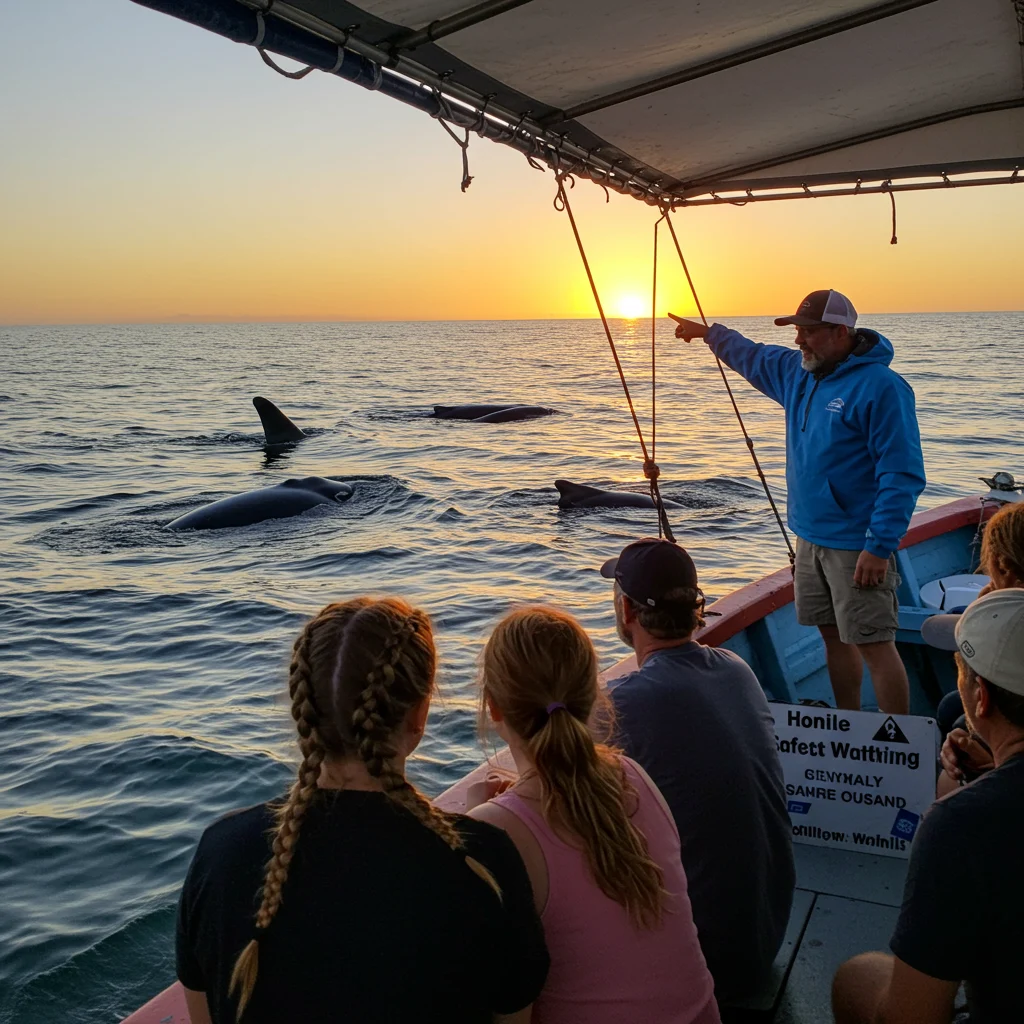
Seasickness Prevention and Remedies
To reduce the risk of seasickness, eat a light meal before boarding and avoid alcohol. Over-the-counter remedies, acupressure bands, or ginger chews can provide relief. Choose a seat near the boat’s center for less motion.
Weather and Sea Conditions: What to Know
Check the forecast before your tour and dress accordingly. Even sunny days can feel chilly on the open water. Operators may reschedule tours if conditions are unsafe, always putting passenger well-being first.
Onboard Safety Briefings
Listen carefully to crew instructions regarding life jackets, emergency procedures, and safe movement on deck. Following guidelines helps keep everyone secure and ensures a smooth, enjoyable outing.
Accessibility Tips for All Travelers
Whale watching in Anacortes is accessible to people of all ages and abilities, with thoughtful accommodations available for many needs.

Are Whale Watching Tours Family-Friendly?
Many tours welcome children and offer family rates. Onboard guides engage young passengers with interactive presentations and encourage them to spot wildlife, making it a memorable outing for all ages.
Accessibility for Seniors and Those with Disabilities
Operators often provide ramp access, stable seating, and assistance for guests with mobility challenges. Contact your chosen operator in advance to discuss specific requirements and available accommodations.
Photography Tips for Capturing Whales and Wildlife
Photographing whales requires patience, quick reflexes, and the right equipment. With some practice, you can capture breathtaking images of these majestic creatures.
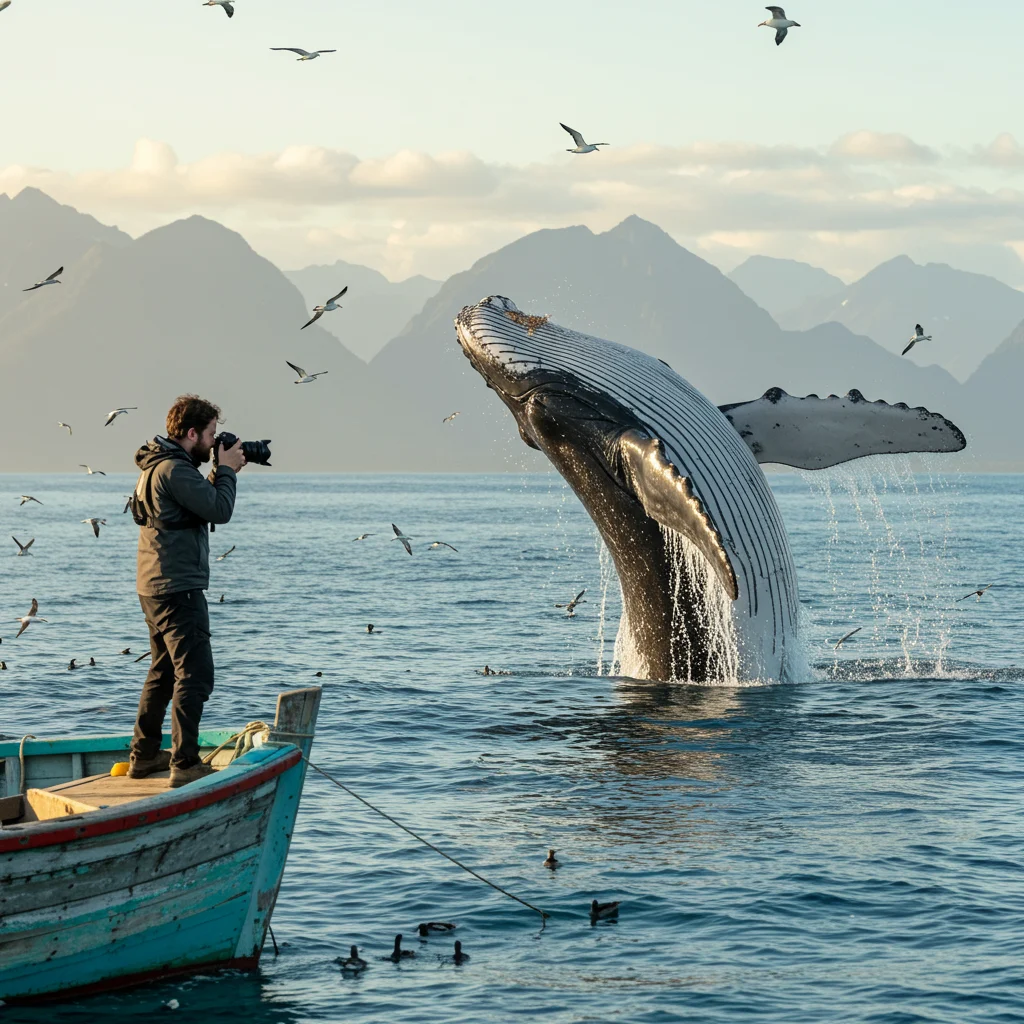
Best Camera Settings for Whale Photography
Set your camera to a fast shutter speed (1/1000s or higher) to freeze motion. Use continuous autofocus and burst mode to increase your chances of catching a breach or tail slap. Adjust ISO and aperture for changing light conditions.
How to Photograph Moving Whales
Anticipate whale movements by watching for surface behaviors and listening to your guide’s cues. Keep your camera ready and use a telephoto lens for close-ups. Practice panning smoothly to follow whales as they swim.
Ethical Wildlife Photography Guidelines
Respect wildlife by keeping a safe distance and avoiding disruptive behaviors. As experts often say:
“Take only photographs, leave only footprints. The best wildlife photos come from patience and respect for the animals’ space.”
Following ethical guidelines helps protect the animals and ensures a positive experience for everyone on board.
Understanding Whale Behaviors: What Will You See?
Whales exhibit a range of fascinating behaviors, each with its own meaning and visual spectacle.
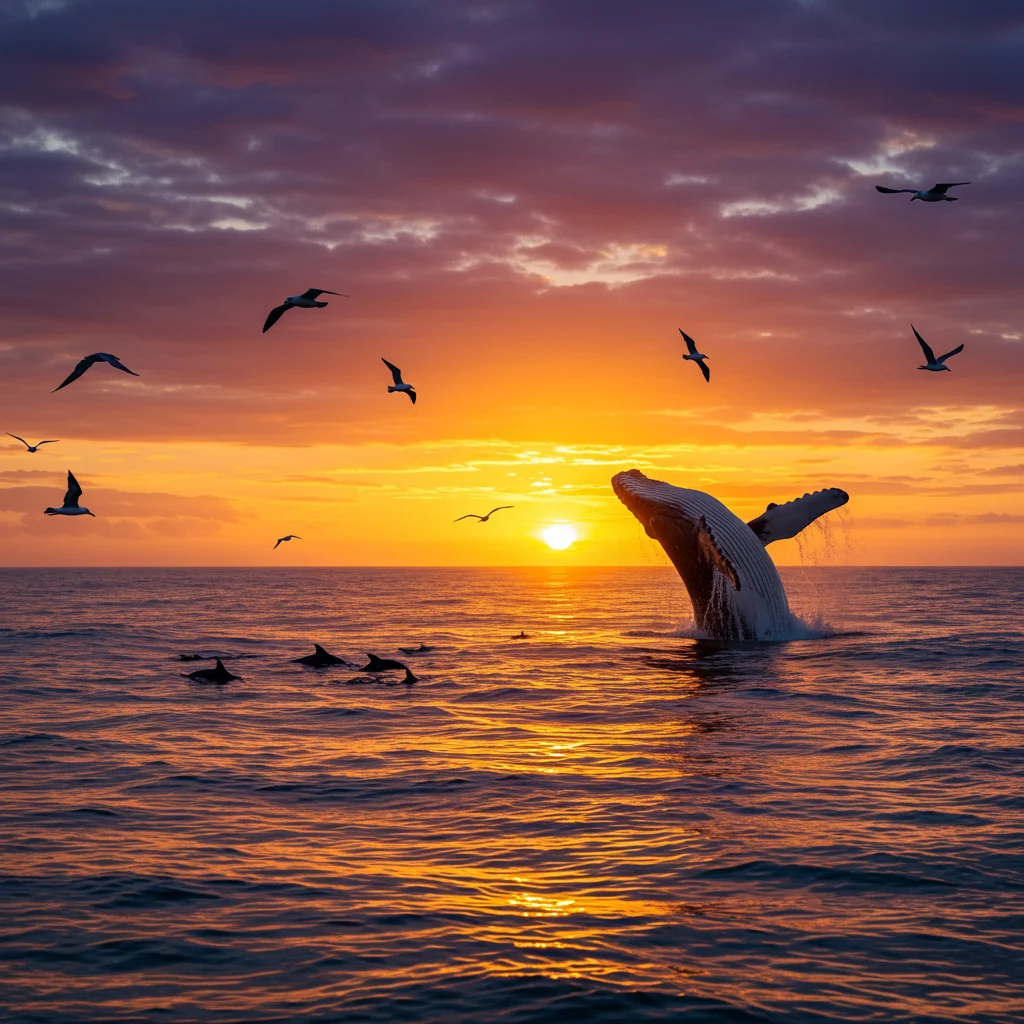
Breaching, Spyhopping, and Tail Slapping
Breaching occurs when a whale launches itself out of the water, creating a thunderous splash. Spyhopping involves a whale poking its head above the surface to observe its surroundings, while tail slapping is used for communication or play.
How to Interpret Whale Movements
Surface behaviors may indicate feeding, socializing, or navigation. Naturalists on board provide context, helping guests understand the subtle cues and interactions that make each sighting unique.
Conservation and Protection of Whales in the San Juans
Protecting the whales and their habitat is a shared responsibility among tour operators, visitors, and the local community.
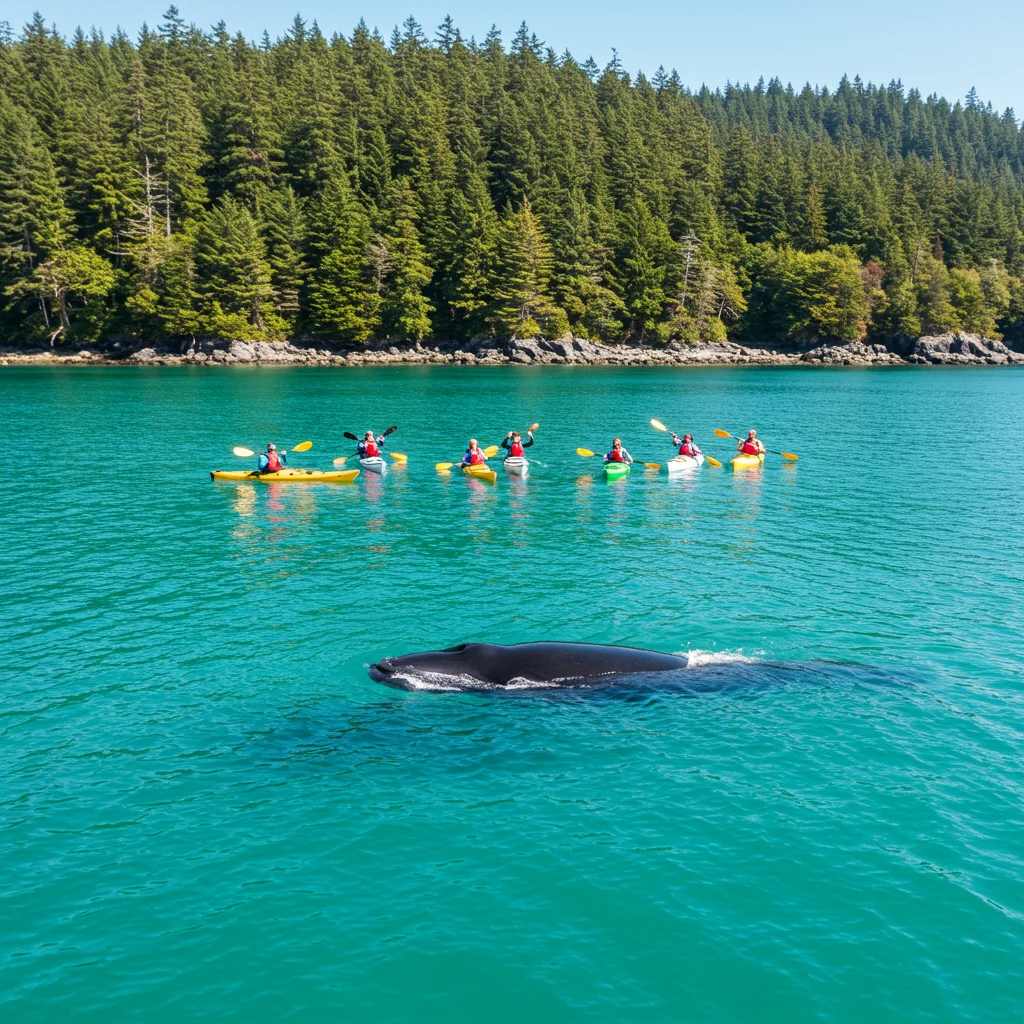
Endangered Species and Local Efforts
Some whales, such as the Southern Resident orcas, are classified as endangered. Local organizations monitor populations, advocate for habitat protection, and conduct research to support recovery efforts.
How Tourists Can Support Whale Conservation
Visitors can contribute by choosing eco-friendly tours, supporting conservation initiatives, and following responsible wildlife viewing practices. Donations and volunteer opportunities are often available through local non-profits.
Responsible Wildlife Viewing Practices
Maintain a respectful distance from all wildlife, avoid loud noises, and never attempt to feed or touch marine animals. By adhering to these principles, we help preserve the delicate balance of the Salish Sea ecosystem.
Frequently Asked Questions About Whale Watching from Anacortes
Many travelers have questions about what to expect and how to prepare for their whale watching adventure.
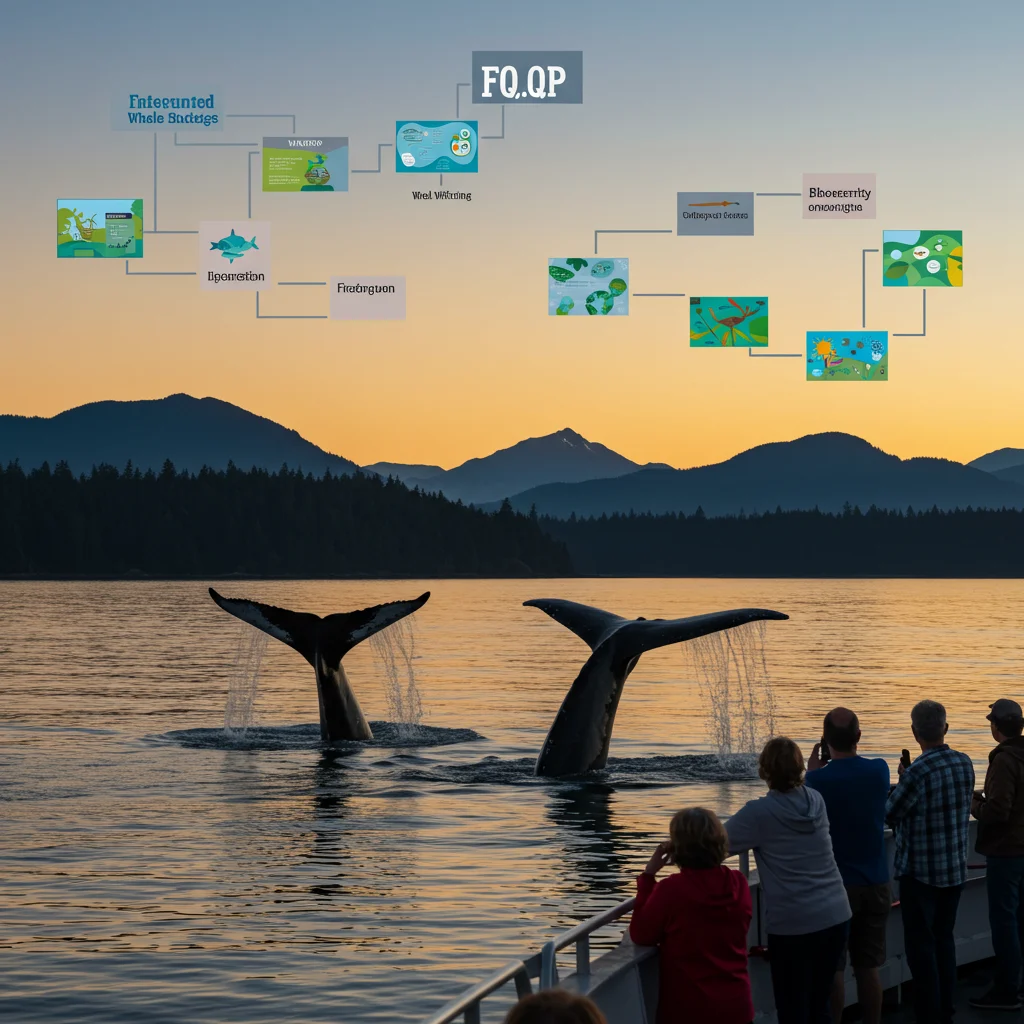
What Are the Chances of Seeing Whales?
While sightings are never guaranteed, Anacortes boasts high success rates—often exceeding 90% during peak seasons. Experienced captains and spotters use real-time reports to locate whales efficiently.
What Happens If No Whales Are Spotted?
Some operators offer return-trip guarantees or discounts if whales are not seen. The journey still includes sightings of other marine life and stunning island views, much like the variety offered on a snorkeling adventure in Maui’s Molokini Crater.
Are Whale Watching Tours Safe for Children?
Yes, most tours are designed with families in mind. Safety equipment and age-appropriate presentations help ensure a secure and engaging experience for young passengers.
Can You Bring Pets on Whale Watching Tours?
Pets are generally not allowed on whale watching vessels, with the exception of certified service animals. Check with your tour operator for specific policies before booking.
How to Get to Anacortes
Reaching Anacortes is straightforward whether you travel by car, bus, or plane.
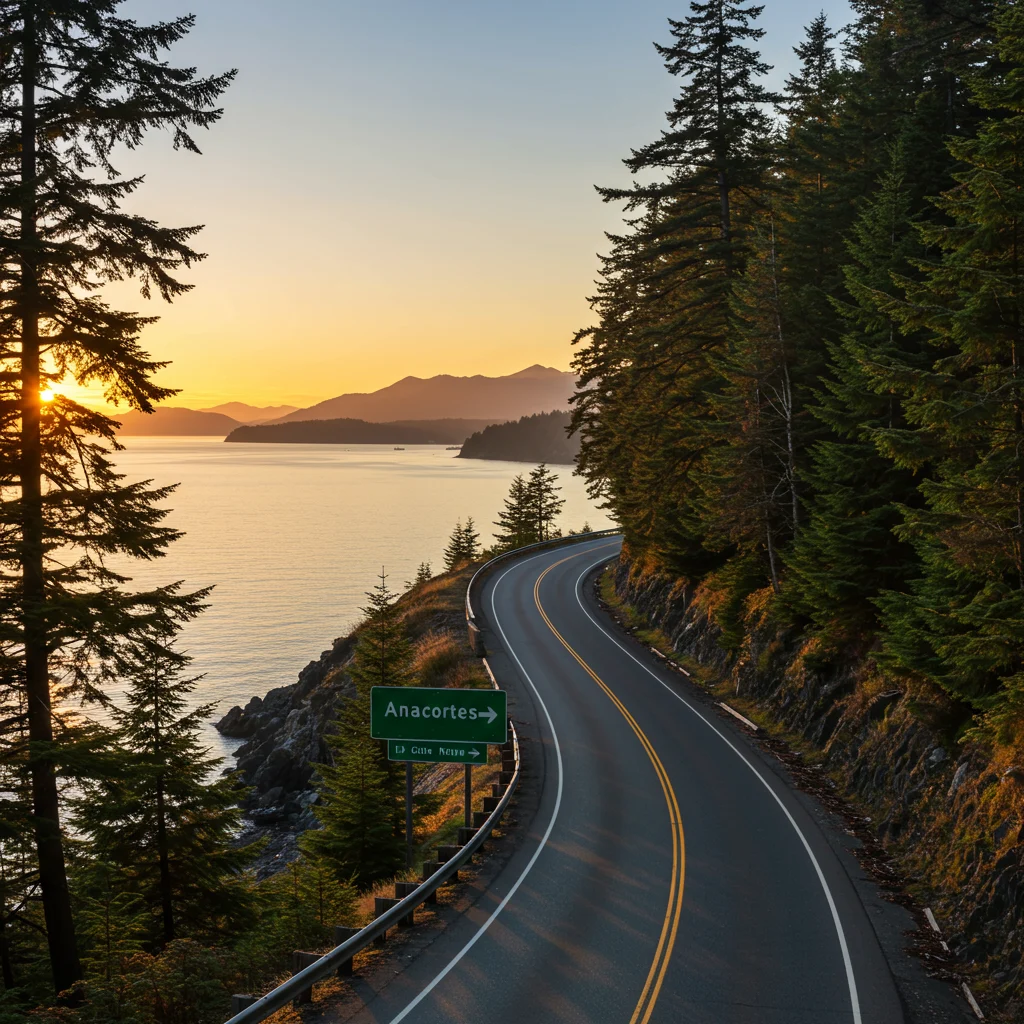
Driving Directions and Parking
Anacortes is accessible via Interstate 5 and Highway 20. Ample parking is available near the marinas, with clear signage guiding visitors to departure points.
Public Transportation Options
Skagit Transit provides bus service from nearby cities, and shuttle services operate from Seattle and Bellingham. Schedules may vary seasonally, so check in advance.
Nearby Airports and Shuttle Services
Seattle-Tacoma International Airport and Bellingham International Airport are the closest major airports. Shuttle services and rental cars offer convenient connections to Anacortes.
Where to Stay: Accommodations in Anacortes
Whether you prefer a waterfront inn, cozy campground, or unique rental, Anacortes offers accommodations for every travel style.
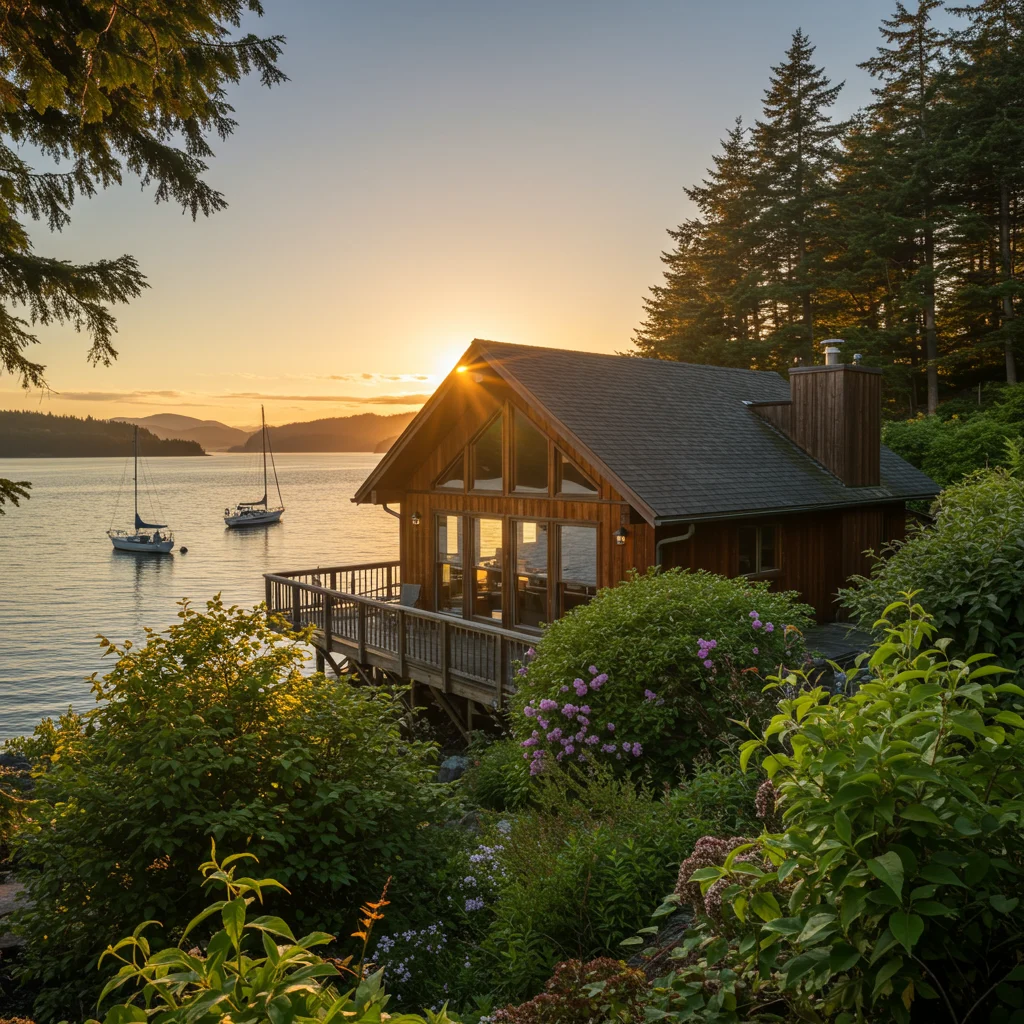
Hotels and Inns Near the Marina
Several hotels and boutique inns are within walking distance of the marinas, offering convenience and comfort for early morning departures.
Camping and RV Options
Parks and campgrounds on Fidalgo Island provide scenic sites for tents and RVs. Many offer amenities such as showers, hookups, and easy access to local trails.
Vacation Rentals and Unique Stays
Vacation rentals, from historic homes to modern apartments, offer privacy and flexibility. For those seeking something special, consider a stay in a houseboat or waterfront cabin.
Dining and Refreshment Options in Anacortes
After a day on the water, enjoy a meal or snack at one of Anacortes’ excellent eateries.
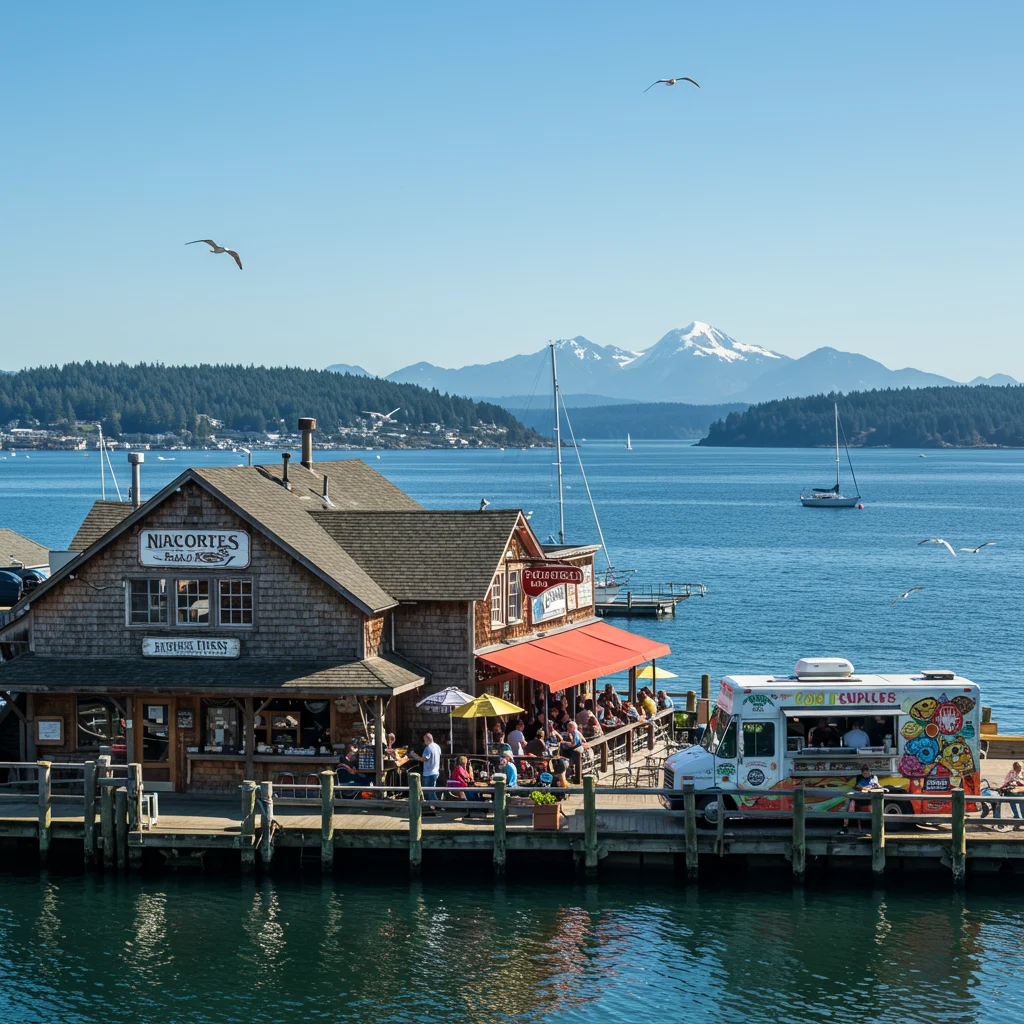
Best Seafood Restaurants
Fresh-caught salmon, halibut, and Dungeness crab grace the menus of local seafood restaurants. Waterfront dining provides stunning sunset views and a relaxed atmosphere reminiscent of the festive ambiance of a Key West sunset sail.
Cafés and Coffee Shops
Charming cafés serve locally roasted coffee, pastries, and light lunches. Many feature outdoor seating perfect for people-watching or planning your next adventure.
Local Markets and Takeaway Options
Pick up picnic supplies, artisanal snacks, and fresh produce at the Anacortes Farmers Market or specialty grocers. Takeaway options are ideal for enjoying a meal on the go or during a scenic hike.
Other Outdoor Activities in Anacortes
Beyond whale watching, Anacortes offers a diverse range of outdoor pursuits for nature lovers.
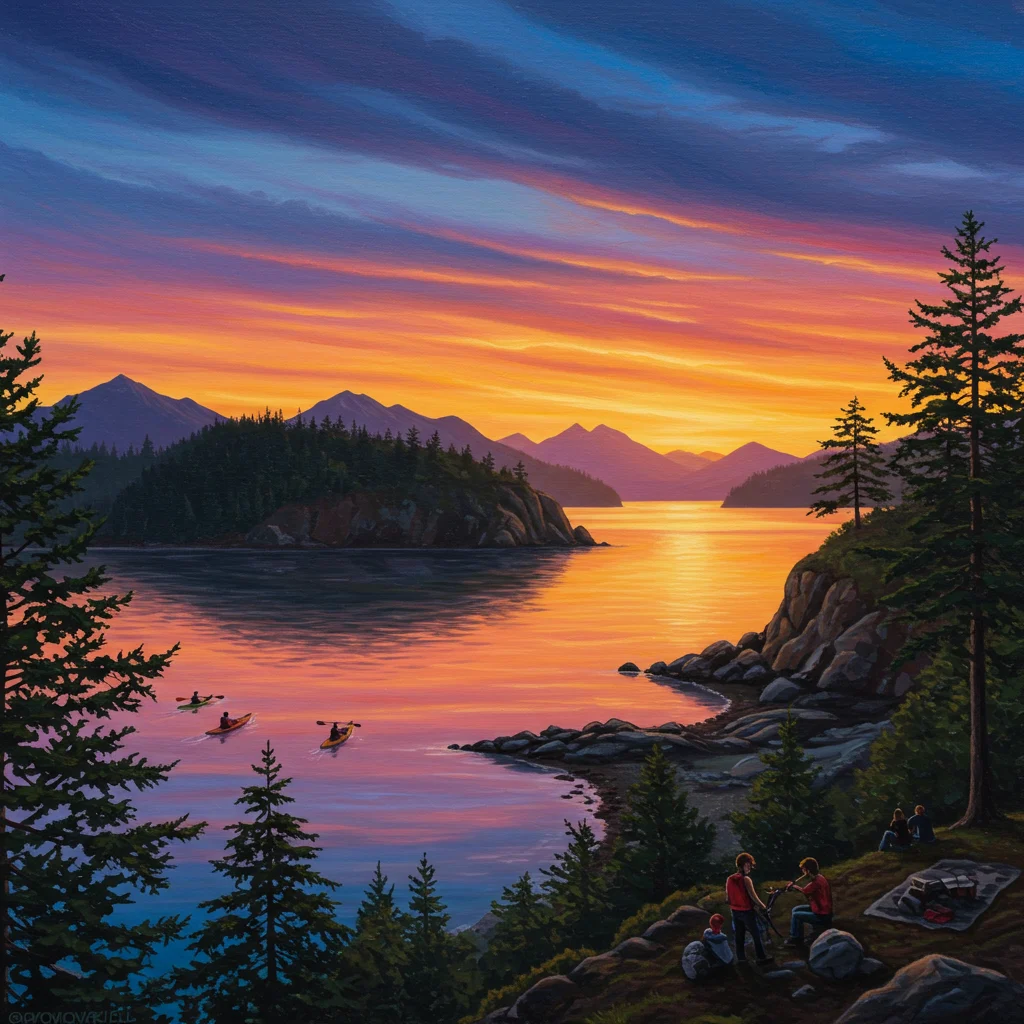
Kayaking and Paddleboarding
Rent a kayak or paddleboard to glide through sheltered bays and explore hidden coves. The calm waters near the marina are perfect for beginners and experienced paddlers alike.
Hiking Trails and Nature Walks
Numerous trails wind through lush forests and along rugged coastlines. Mount Erie and Washington Park offer panoramic views, wildflowers, and opportunities to spot wildlife on land.
Biking and Scenic Drives
Bike-friendly roads and scenic byways invite leisurely exploration of Fidalgo Island. Take in sweeping vistas, charming farms, and coastal bluffs at your own pace, much like the freedom found on a speed boat tour in St. Maarten.
Exploring Anacortes: Top Attractions for Visitors
Complement your whale watching adventure with a visit to Anacortes’ cultural and historic attractions.
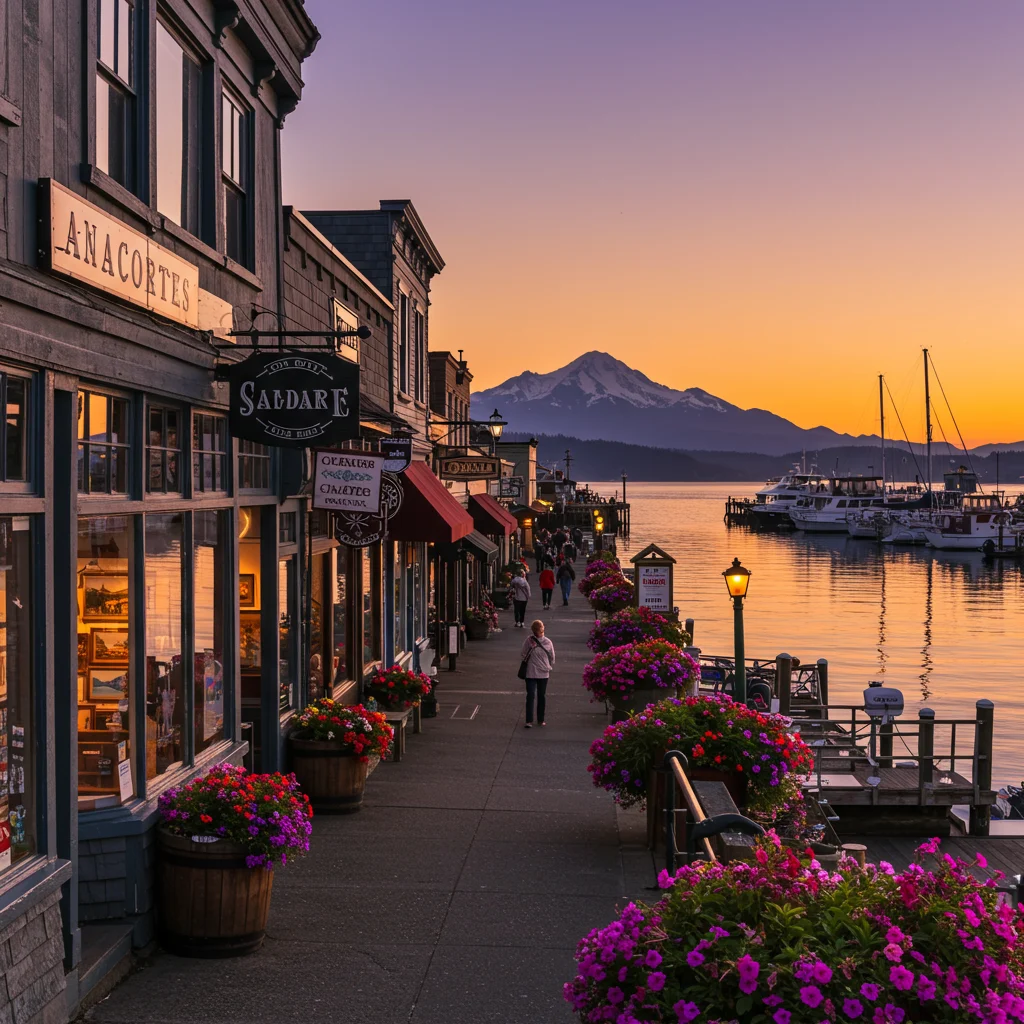
Historic Downtown Anacortes
Stroll through downtown’s tree-lined streets to admire Victorian architecture, unique shops, and lively events. Murals and public art installations tell the story of Anacortes’ maritime heritage.
Local Art Galleries and Museums
Art galleries showcase works by local painters, sculptors, and photographers. The Anacortes Maritime Heritage Center offers exhibits on the region’s seafaring past and present.
Parks and Scenic Viewpoints
Washington Park, Cap Sante Park, and Ship Harbor Interpretive Preserve provide stunning overlooks, picnic spots, and peaceful spaces to reflect on your journey.
Tips for Making the Most of Your Whale Watching Adventure
With a little planning, you can maximize your enjoyment and create lasting memories on your whale watching tour.
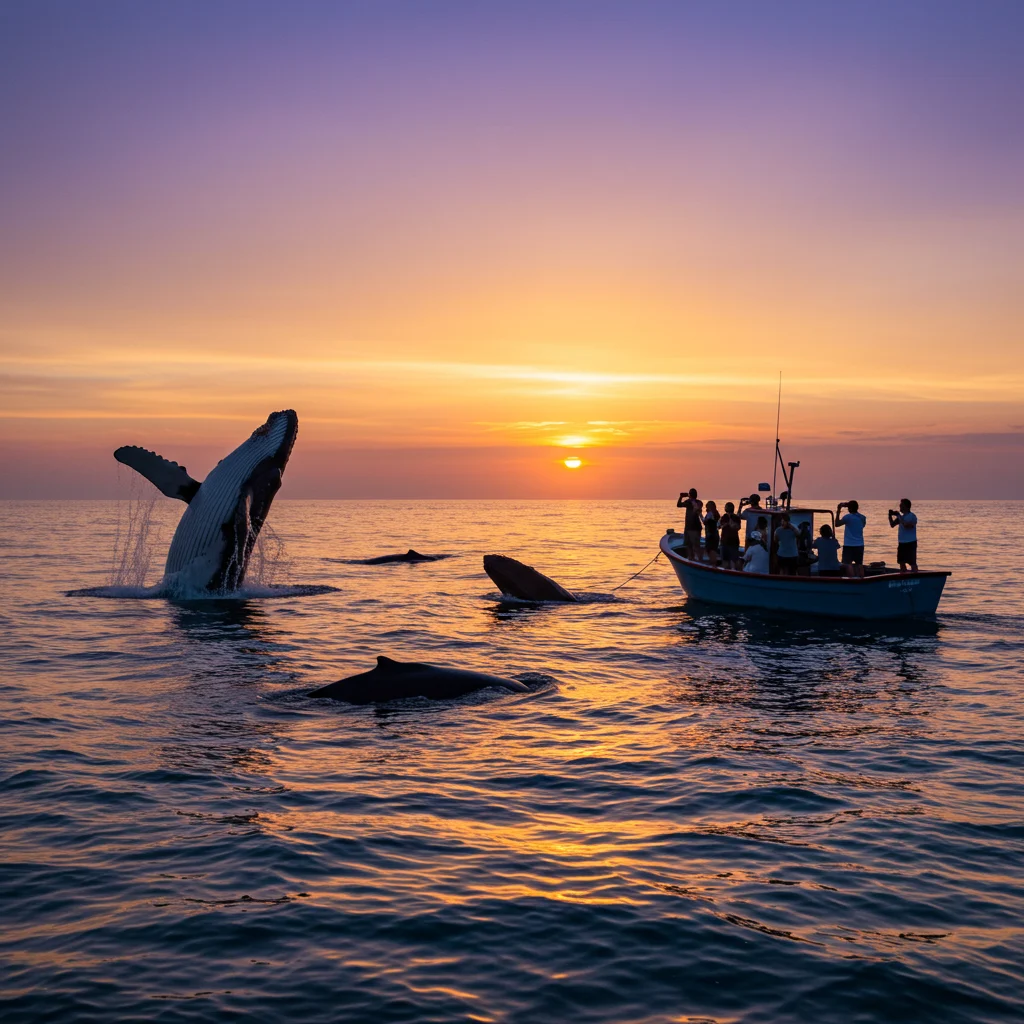
Booking in Advance vs. Last-Minute
Booking early secures your preferred date and time, especially during peak season. Last-minute bookings may be available but can limit your options.
How to Prepare Kids for the Experience
Share books and videos about whales to spark your children’s curiosity. Explain the importance of patience and quiet observation for the best chance at seeing wildlife.
Maximizing Your Chances of Seeing Whales
Choose tours with experienced naturalists, flexible itineraries, and a track record of successful sightings. Remain alert and scan the horizon, as whales can appear unexpectedly.
Sustainable Tourism: How to Leave No Trace
Practicing responsible tourism protects Anacortes’ natural treasures for future generations.

Minimizing Your Environmental Impact
Dispose of trash properly, use refillable water bottles, and avoid single-use plastics. Stay on designated trails and respect wildlife habitats both on land and at sea.
Supporting Local Businesses and Conservation Efforts
Frequent locally owned restaurants, shops, and tour operators. Support conservation initiatives through donations or volunteer work, helping to preserve the beauty and biodiversity of the San Juan Islands.
Conclusion: Why Anacortes Should Be on Every Nature Enthusiast’s Bucket List
From the exhilarating sight of breaching orcas to the tranquil beauty of the San Juan Islands, Anacortes whale watching tours offer a profound connection to nature. Whether you’re an avid wildlife photographer or a family seeking shared adventure, this destination promises memories that will last a lifetime. For more inspiration and expert travel tips, visit Zeosh—your trusted companion for unforgettable journeys in the world’s most breathtaking places.
